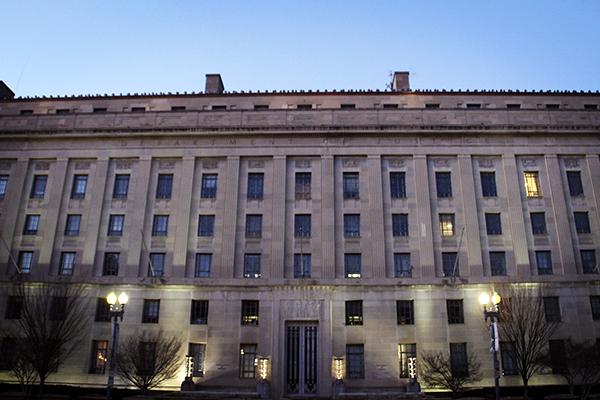Researchers at GW’s extremism program are finding ways to counter terrorist organizations on social media.
One of the leaders of the program on extremism attended an Anti-Extremist Summit last week, an event centered on identifying ways to counter the ways extremist groups recruit and organize online. Researchers in the program – one of the only in the country – have published several reports about the Islamic State’s use of social media over the last year, including how to limit the ISIS’s reach on Twitter.
The U.S. Department of Justice held the high-profile conference with nine government agencies, representatives from the United Nations and social media companies to discuss counter-messaging initiatives and efforts to remove jihadist content.
Seamus Hughes, the deputy director of the program on extremism, attended the summit and said that the government agencies wanted to work with technology companies to develop counter messages and combat ISIS’s use of social media.
“The Summit was a recognition by the administration that it’s ill-equipped and ill-positioned to address ISIS online radicalization and recruitment in the U.S.,” Hughes said. “It was a good first start of the conversation, the question becomes what the follow-up is afterward.”
He said there have been heated conversations about whether terrorism-related social media accounts should be suspended or if content should be taken off sites like Twitter. He said the studies the center’s researchers conduct will help inform the discussion.
Hughes added that the program is not limited to researching ISIS extremism in America, but also why Americans are drawn to extremist movements.
Hughes published a paper last year with Lorenzo Vidino, director of the program, that analyzed demographics and why Americans may try to join ISIS.
He said he and Vidino reviewed more than 7,000 pages of legal documents and monitored hundreds of social media accounts tied to ISIS supporters in America. He said they continue to update the report’s findings every month and provide briefings to the public and law enforcement.
“We wanted to have a nuanced conversation about ISIS-related radicalization and recruitment in the United States that was based on facts, not fears,” Hughes said. “We wanted to inform the public discussion on these issues.”
The program on extremism started last year and resides in the Center for Cyber and Homeland Security. The program gives researchers the opportunity to analyze and create counterterrorism policy solutions on forms of extremism, particularly in the United States.
Researchers found that ISIS-affiliated users lost followers on Twitter after their accounts were suspended, according to a report released this month.
J.M. Berger, a fellow in the program and author of the newly published study, said extremism in social media “exploded to prominence” around 2010. Berger said extremist groups like ISIS use Twitter to organize, communicate and build a sense of community.
“Unfortunately, there are a lot of difficult issues that need to be hashed out between the government and social media companies,” Berger said. “ISIS has forced a crisis in one particular corner of this.”
The study tracked roughly 1,000 English-speaking ISIS-supporter Twitter accounts from August to September last year, and collected additional data in June and October. Heather Perez, a law enforcement analyst, helped Berger on the project.
Suspending the accounts lowered ISIS’s reach on Twitter – users lost followers and couldn’t produce content as frequently, Berger said. He said the research could help show officials why it is important to suspend ISIS-affiliated accounts.
“This question is going to get more and more complicated over time. We need to start having these conversations now,” Berger said. “Some of the recent conversations are not necessarily big steps toward a solution, but they are a necessary starting point.”
He said social media companies are pushing back on how extremists use the forums as recruitment platforms, and while it was easy to identify ISIS content, other groups are now following their lead and using social media to recruit new members.
“There is not a real moral quandary about getting ISIS to stop using the platform, but as time goes on what we have already seen is that other extremist groups are starting to emulate the tactics that ISIS has used on social media,” Berger said.








